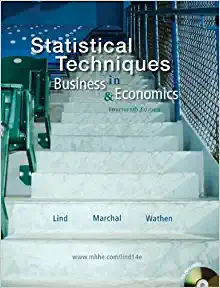Question
context: Schools of Thought in Context: South Korea and Argentina We will have two example in this school of thought and we will use the
context:
Schools of Thought in Context: South Korea and Argentina We will have two example in this school of thought and we will use the first four broad approaches to developmentstages of growth, structural patterns of development, dependence, and neoclassicalprovides important insights about development processes and policy. South Korea is the first country which we will talk about and how it developed its economy, it care about development of agriculture and agricultural productivity, shifts of labor from agriculture to industry, the steady growth of the capital stock and of education and skills, and the demographic transition from high to low fertility. And that make GNI is very high in South Korea. South Korea carried out a thoroughgoing land reform, so agriculture was not neglected; but otherwise its growth through rapid expansion of the percentage of the labor force in industry has broadly conformed to the Lewis model of development. After about 1970, productivity growth in agriculture also increased rapidly, owing in part to a successful integrated rural development program. Still, South Korea's ascent has seemed to epitomize Rostow's notion of an economy in the midst of a "drive to maturity," well on its way toward mastering the range of currently available technologies; and appears to be entering an "age of high mass consumption. Upgrading policy, sharply limiting the role of multinational corporations and deliberately establishing indigenous industries as an alternative, and using debt rather than direct foreign equity investment to finance extraordinary levels of investment. The last important thing which is this country care about is placed strong emphasis on primary rather than university education, two policies of exceptional importance. The other example is Argentina, it was same of South Korea, and Stages of Growth The history of Argentina poses a strong challenge to the linear stages approach. Rostow defined takeoff as "the interval when the old blocks and resistances to steady growth are finally overcome...Growth becomes its normal condition." In 1870, Argentina ranked 11th in the world in per capita income (ahead of Germany); today, it is not even in the top 60. But in the 1980s Indicators of growth and development began to decline and collapse. Argentina did exhibit many of the usual structural patterns of development as agricultural productivity rose, industrial employment grew (albeit slowly), urbanization took place, fertility fell, and so on. The country relied to a large extent on exporting primary goods, and the real prices of these goods fell compared to imports. And Argentina was unable to create its own Viable manufacturing export industries, and that make Argentina the theory of dependency applies because it start losing more and more. In my opinion the internal and external policies of governments, foreign relations and aid have a strong impact on the growth and development of the economy. The interest in education is one of the most important elements take-off in the future for any country taking into account certain special circumstances countries
Question:
In the book of Todaro and smith, In reference to Case Study No. 3 on South Korea and Argentina, in what ways do we see evidence of the classic theories of economic growth and development confirming or challenging its occurrence in the way the Philippines is being shaped economically?
Step by Step Solution
There are 3 Steps involved in it
Step: 1

Get Instant Access to Expert-Tailored Solutions
See step-by-step solutions with expert insights and AI powered tools for academic success
Step: 2

Step: 3

Ace Your Homework with AI
Get the answers you need in no time with our AI-driven, step-by-step assistance
Get Started


